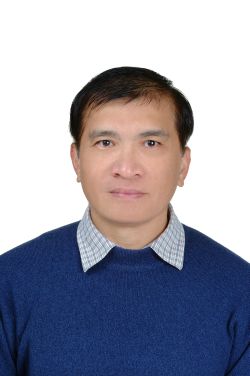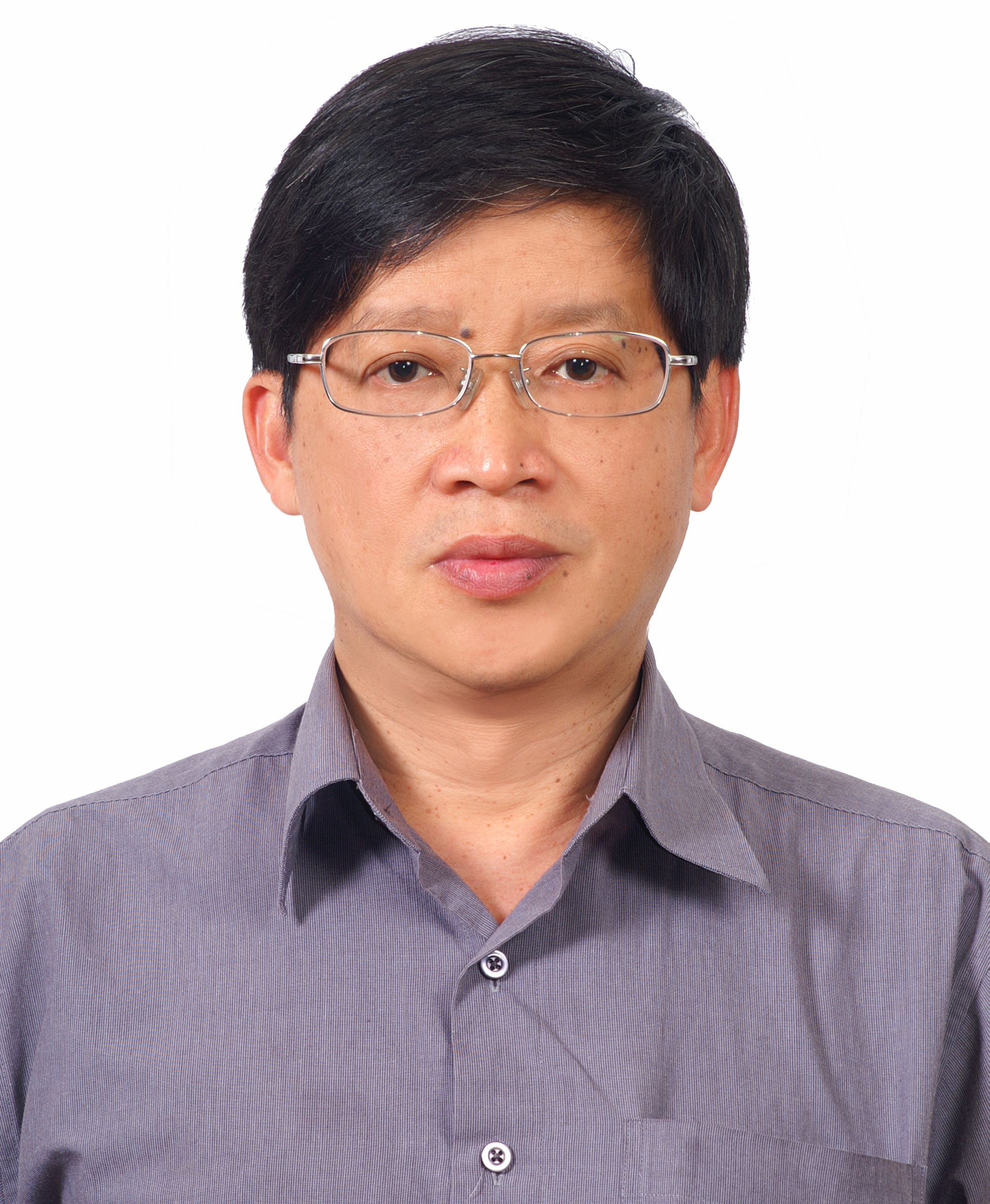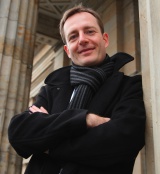Keynote Speeches
-
Professor Chin-Chen Chang, Chair Professor, IEEE and IET Fellow
Department of Information Engineering and Computer Science, Feng Chia University, Taiwan -
Professor Jar-Ferr Yang, Distinguished Professor
Department of Electrical Engineering, National Cheng Kung University, Taiwan -
Professor Volker Roth, Professor
Freie Universitat, Germany
Professor Chin-Chen Chang |
|
|
|
| Topic: | Authenticatable Visual Secret Sharing |
| Abstract: | The computer technologies have grown significantly in the past years. More and more multimedia products such as digital cameras have become popular, so digital images are shared and transmitted widely over Internet. However, transmitting secret or important images, such as military or commercial images, over Internet is very dangerous. Malicious users may monitor Internet and try to eavesdrop these valuable images. To protect these images, visual cryptography is necessary for secure communications over Internet. Herein, secret image sharing can be applied to achieve the goal of visual cryptography. In this speech, I will talk about some visual cryptosystems based on the concept of secret image sharing. As for the topic of secret image sharing, the secret image sharing scheme uses several noise-like images, called shadows, to replace the original image transmitting over the Internet. The shadows can avoid threats from the illegal persons to access the secret image directly. Secret image sharing techniques were proposed to be another branch outside traditional cryptographic techniques and steganography. Based on sharing secret images, visual cryptography for binary images, grayscale images and color images will be introduced. |
| Biography: |
Professor Chin-Chen Chang obtained his Ph.D. degree in computer engineering from National Chiao Tung University. His first degree is Bachelor of Science in Applied Mathematics and master degree is Master of Science in computer and decision sciences. Both were awarded in National Tsing Hua University. Dr. Chang served in National Chung Cheng University from 1989 to 2005. His current title is Chair Professor in Department of Information Engineering and Computer Science, Feng Chia University, from Feb. 2005. Prior to joining Feng Chia University, Professor Chang was an associate professor in Chiao Tung University, professor in National Chung Hsing University, chair professor in National Chung Cheng University. He had also been Visiting Researcher and Visiting Scientist to Tokyo University and Kyoto University, Japan. During his service in Chung Cheng, Professor Chang served as Chairman of the Institute of Computer Science and Information Engineering, Dean of College of Engineering, Provost and then Acting President of Chung Cheng University and Director of Advisory Office in Ministry of Education, Taiwan. Professor Chang's specialties include, but not limited to, data engineering, database systems, computer cryptography and information security. A researcher of acclaimed and distinguished services and contributions to his country and advancing human knowledge in the field of information science, Professor Chang has won many research awards and honorary positions by and in prestigious organizations both nationally and internationally. He is currently a Fellow of IEEE and a Fellow of IEE, UK. And since his early years of career development, he consecutively won Institute of Information & Computing Machinery Medal of Honor, Outstanding Youth Award of Taiwan, Outstanding Talent in Information Sciences of Taiwan, AceR Dragon Award of the Ten Most Outstanding Talents, Outstanding Scholar Award of Taiwan, Outstanding Engineering Professor Award of Taiwan, Chung-Shan Academic Publication Awards, Distinguished Research Awards of National Science Council of Taiwan, Outstanding Scholarly Contribution Award of the International Institute for Advanced Studies in Systems Research and Cybernetics, Top Fifteen Scholars in Systems and Software Engineering of the Journal of Systems and Software, Top Cited Paper Award of Pattern Recognition Letters, and so on. On numerous occasions, he was invited to serve as Visiting Professor, Chair Professor, Honorary Professor, Honorary Director, Honorary Chairman, Distinguished Alumnus, Distinguished Researcher, Research Fellow by universities and research institutes. He also published over serval hundred papers in Information Sciences. In the meantime, he participates actively in international academic organizations and performs advisory work to government agencies and academic organizations. |
Professor Jar-Ferr Yang |
|
|
|
| Topic: | Smart Living and Learning in Smart Cities |
| Abstract: | By using intelligent information communication technologies (ICT), many prospective cities in various conditions start to heavily establish smart services for their citizens. The development of ICT-based smart living products and creative humanity services becomes future global consensus and industrial trends in the world. For smart cities, the living-lab user-driven innovations, which bring products and services naturally and smartly close to human needs, should heavily adopt many interactive multimedia technologies. The interactions through the detection of human nature touch, voice, and gestures and the responses of virtually real multimedia could be implemented in highly integrated embedded and cloud computing systems.
|
| Biography: |
Jar-Ferr Yang received his MS degree from the National Taiwan University, Taiwan in 1979, and Ph. D. degree from the University of Minnesota, Minneapolis, USA in 1988. He joined the National Cheng Kung University started from Associate Professor in 1988 and became Full Professor during 1994 and 2004. He was the Chairperson of Graduate Institute of Computer and Communication Engineering and the Director of the Electrical and Information Technology Center in the University. Currently, he is a distinguished professor and the Director of Technologies of Ubiquitous Computing and Humanity (TOUCH) Center, supported by National Science Council (NSC), Taiwan. He is also the Associate Vice President for Research and Development in the National Cheng Kung University.
During 2004 - 2005, he was selected as a speaker in the Distinguished Lecturer Program by the IEEE Circuits and Systems Society. He was the Chair of IEEE Multimedia Systems and Applications Technical Committee and was an Associate Editor of IEEE Transaction on Circuits and Systems for Video Technology. In 2008 and 2010, he received the NSC Excellent Research Award and Outstanding Electrical Engineering Professor Award, respectively. Currently, he is the Chairman of IEEE Tainan Section and an Associate Editor of EURASIP Journal of Advances in Signal Processing and an Editorial Board Member of IET Signal Processing. He has published over 99 journal and 156 conference papers. He is a Fellow of IEEE for his contributions to fast algorithms and efficient realization of video and audio coding. |
Professor Volker Roth |
|
|
|
| Topic: | Simpler Security Mechanisms for an Increasingly Complex World |
| Abstract: | The world relies ever increasingly on the ubiquitous availability of sophisticated information and communication technology, and the Internet and Internet technologies have emerged as the principal fabric on which this technology operates. Software complexity has increased along the way, in part due to increasingly complex requirements and also due to the principles of software component re-use. Unfortunately, software components are often written with benign environments in mind, and are subsequently re-used by developers who have a limited understanding of the constraints and possible side effects of the so re-used components. This means not only that software has become more fragile from a security perspective, but also that vulnerable software is re-used widely without due attention to the inherent risks. |
| Biography: | Since 2009, Volker Roth is Bundesdruckerei GmbH endowed professor for Secure Identity at the Computer Science Department of Freie Universitaet Berlin (FUB), which is one of the premier universities in Germany and has received awards within the German national excellence initiative. Its computer science department is the largest of the three major universities in Berlin based on the number of students and the number of new enrollments. The Bundesdruckerei GmbH endowed chair for Secure Identity focuses on the technical and interdisciplinary challenges of securing the many facets of digital identities. Prior to joining the faculty at FUB, Prof. Roth was a senior researcher at FX Palo Alto Laboratory, an industrial research laboratory owned by Fuji-Xerox, the CTO of a start-up company in the midwest of the United States of America, and a researcher and deputy department head at a German Fraunhofer Institute. Prof. Roth received his Diplom and doctoral degrees in Computer Science from Technische Universitaet Darmstadt, Germany. He has published numerous articles in top conferences and journals and and he is a member of the ACM, SIGSAC, the Deutscher Hochschulverband and an associated member of the Gesellschaft fuer Informatik. |